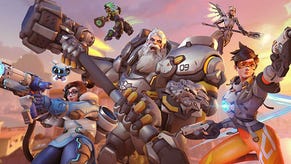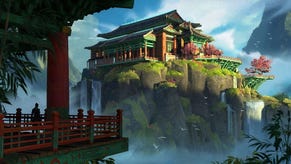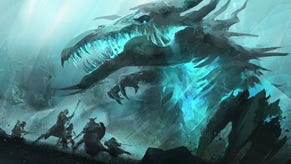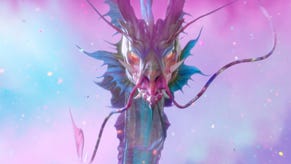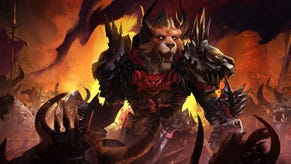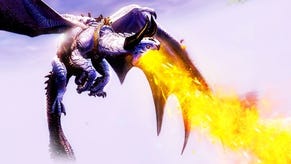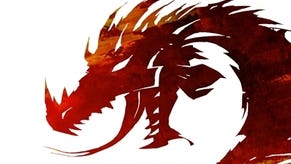Guild Wars 2: How to make MMOs better
Designer Colin Johanson takes us inside ArenaNet.
"Since it's not fighting for your $15 a month, Guild Wars 2 can happily co-exist with World of Warcraft. The question, really, is whether World of Warcraft, in all its undeniable but ageing glory, can co-exist with Guild Wars 2," I wrote about NCsoft's radical new MMO last month.
Maybe I'd been caught up in the hyperbolic spirit at Seattle studio ArenaNet, where president Mike O'Brien told us "we certainly have our sights set on number one," and "we can make the highest quality MMO ever released." But the game is definitely slick, fun and seamless, while the team's ambition makes a big impression. ArenaNet really does think it can make the first big step forward for MMOs since WOW's launch in 2004 – a step which the genre badly needs.
From both a business and a development standpoint, making and launching a new MMO is the most intimidating task in video games. Where does ArenaNet find such confidence and daring? What makes this unassuming studio, founded by a trio of ex-Blizzard staff in 2000 and with one game to its name, think it can take on the might of their former employer?
For one thing, it has the comfortable backing of owner NCsoft, which has dominated the lucrative South Korean market for well over a decade now with Lineage, Lineage II and Aion. But money's not the whole story. Touring the studio and chatting to staff, I pick up several clues that this is no ordinary games developer.
At ArenaNet, employees from different disciplines mingle in "strike teams", and O'Brien moves his desk around to be where he feels he's needed. There's a story about him spending a few weeks sat in a corridor.
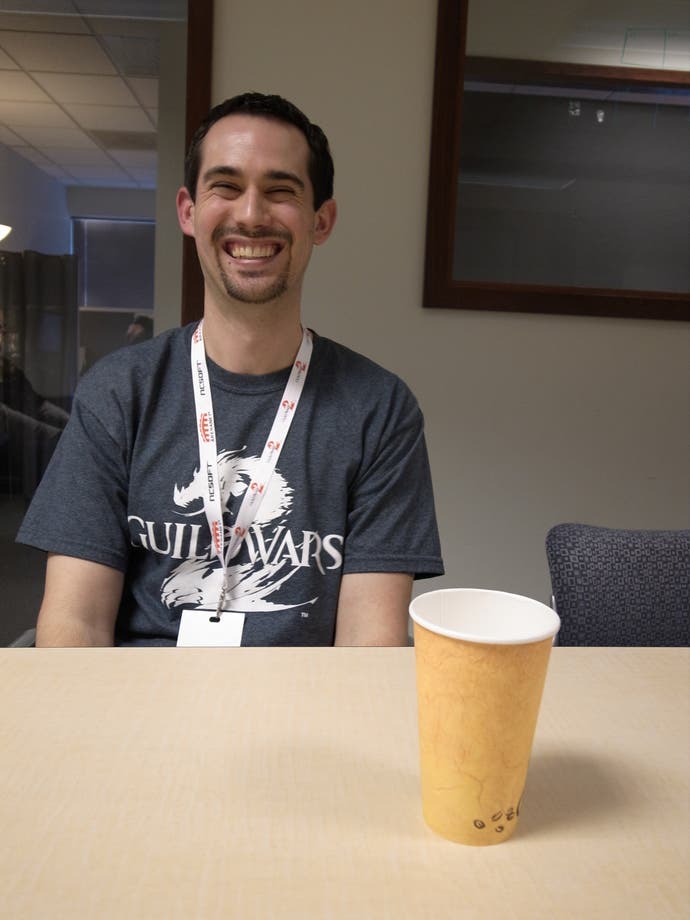
Testers are as integrated in the development process as designers and programmers, and regular calls go out for the entire staff to down tools, jump on the servers and play the game. There's a frenzied company-wide PVP session taking place as I nose round the office.
Burly Romanian art director Daniel Dociu introduces me to a special art team which is both incubating young talent and experimenting with doing concept art directly in the game engine – sculpting wild ideas out of particles and polygons instead of paint. Yet the studio spends a fortune tracking down antiquated graphics cards to put in every PC in the office, just to ensure that Guild Wars 2's beautiful vision will be well optimised for the average player.
At the end of my visit, I talk to the youthful and irrepressibly cheerful lead content designer Colin Johanson – who has been at the company for six years – and ask him to sum up the ArenaNet difference...
I think there's a couple of words that I would use to describe ArenaNet. The first is creatively fearless – as a company, we are never afraid to try anything. And that is true of the decisions that we make in our video games, but that's also true of our company culture.
There's no company that doesn't have flaws, and we certainly have problems here too. The difference that makes ArenaNet unique to me is when we see something wrong in the company, when we see something that we could be doing better, we actively try to pursue ways to fix that problem. It's amazing to see how much this company has grown and changed over the last few years as a direct result of being willing to do that.
I think one of the core ones for me is taking the holy trinity [of MMO character classes] – you have your front line, you have your healer and you have your ranged character, basically – and just throwing it out the window.
We're basically saying, listen, this as a core game mechanic is tired, we can do something better, we can do something more interesting than this. Let's not do it, let's try to do something else. And that's what we've spent many years now perfecting and working on, and getting to the point that we feel we have a combat system that doesn't need it and, we feel, works better without it.
I think the dynamic event system... even early on, when we would tell our fans, "Hey, we're going to make this game system that doesn't have quests in it," the response was, "Woooooah, don't do that! I really like quests, it's all I know. How do I get through a game without seeing a guy with a question mark over his head and running over and talking to him?"
We said, well, why do you need that? And it's something where, again, we didn't know if it was going to work or not, but we built it and started playing with it and fell in love with it.
That's something we started doing recently, just in the last couple of years we've adopted this system of setting up smaller teams. We like to call them strike teams. They're basically devoted to solving a problem in the game, or dealing with specific core features in the game.
We found that when we bring [designers, programmers, artists and testers] into a room together, and we give them the opportunity to have open dialogue with each other all day, suddenly these ideas that we had start growing and becoming bigger and they start finding new things they can layer on top of it that they never thought of before, because they have a new perspective around them... it's really fantastic to have very different mindsets around you.
Our QA [quality assurance, or testing] team just sits with us and works with us, and they have ideas that we put in the game all the time. That's something that, everywhere I've been, is very unique.


